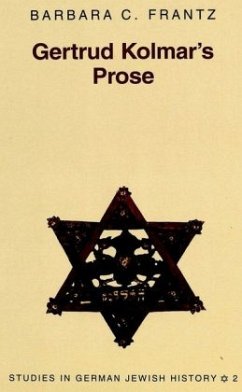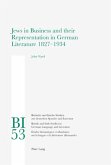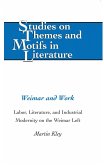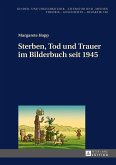This study is a close reading of two texts by the German poetess Gertrud Kolmar, Eine jüdische Mutter and Susanna . It analyzes the historical, sociological, and cultural conditions under which Kolmar's characters lived. Particular emphasis is placed on the traditional role of Jewish women and the changes in this role brought about by socioeconomic developments during the first half of the twentieth century in Germany, and on the impact these changes had (or did not have) on the self-assessment, sexuality, and mother-child/family relationship of the Jewish female characters in Kolmar's texts. Most importantly, this study focuses on how particular pressures and concerns affect the inner world of Kolmar's characters.
"'Gertrud Kolmar's Prose Works' will fill a serious gap in the knowledge of this Jewish writer's insight into the many factors contributing to the Holocaust. By elucidating the social background of the daily existence of Jewish women in the 1920s and 1930s, as reflected in Kolmar's work, Dr. Frantz makes understandable many of the issues of the ingroup and intergroup violence, of the murder of the mentally ill, and the situation of the Polish immigrant to Germany in the 1920s that inform Kolmar's prose writing. With this background and with Dr. Frantz's careful analysis of the formal characteristics and the psychological motivations of the characters, Kolmar's texts become understandable in a powerful way. Dr. Frantz's analysis is not restricted to a sociological argument. By working within a psychoanalytical object framework, she illuminates the texts through her understanding of the psychodynamics of narcissistic rage, a rage that is fueled by her characters' experiences of racial and gender hatred. The study is a must for anyone interested in German-Jewish relations during the 1920s and 1930s as well as anyone interested in Kolmar's achievements as a prose writer." (Ursula Mahlendorf, University of California, Santa Barbara)








